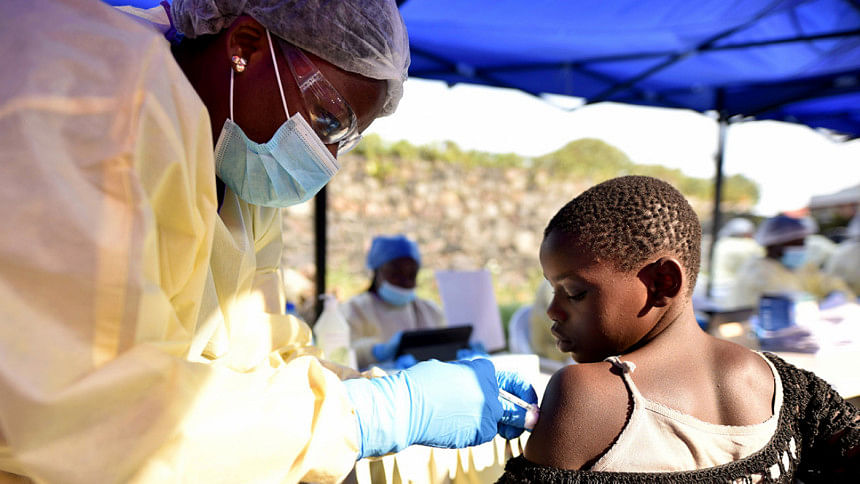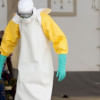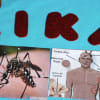Rwanda seals Congo border after third Ebola case in Goma

Rwandan authorities today closed the border with the Ebola-hit Congolese city of Goma for everyone other than Congolese citizens leaving Rwanda, as a third case was confirmed in Goma.
-Congo outrage at "unilateral" move by Rwanda
-Congo's Goma tests more cases after 3rd confirmed
- WHO advises against closing borders to Ebola-hit nations
The daughter of an Ebola patient in the east Congo city has contracted the virus, Congolese officials confirmed, the third case in a metropolis of at least 1 million people that neighbours Rwanda.
Rwandan state minister for the Foreign Affairs Ministry, Olivier Nduhungirehe, told Reuters by phone that the border had been shut but declined to give further details. Congo deplored the decision.
Confirmation of the third case in Goma increased fears the virus could take root in the densely populated city, which lies more than 350 km (220 miles) south of where the outbreak was first detected.
The second patient died after he sought treatment too late and was already bleeding, authorities said on Wednesday.
The outbreak in Congo has killed more than 1,800 people over the past year and become the second-worst on record.
"The tests on a suspected case at the Goma Ebola treatment centre came out positive for the Ebola virus. Investigations are still under way around this ... case," Dr Aaron Aruna Abedi, who coordinates the Ebola response for Congo's health ministry, told Reuters on the phone.
MSF spokeswoman Jinane Saad said contacts of a patient in Goma were currently being tested.
"DEPLORE THIS DECISION"
Nestled in hilly country at the foot of an active volcano, Goma lies just 7 km (4.5 miles) from Rwanda's main border town of Gisenyi.
Some 45,000 people go through the main border post between Goma and Gisenyi, according to an immigration official, and many worried of the closure's impact on their businesses.
After the first Ebola case in Goma was confirmed in mid-July, the World Health Organisation (WHO) declared the outbreak an international health emergency. It was earlier reluctant to do so, partly out of fear countries bordering Congo might shut their frontiers.
"By closing the border like this, they deprive a lot of people of their earnings today. Most of the women here cross into Rwanda to find food for us in Goma," Lucien Kalusha, a Congolese hairdresser who crosses every day to work in Rwanda, told Reuters.
Another, smaller border post near Goma was unusually quiet, as traders and vehicles had left after the closure was announced.
When declaring the emergency, WHO director-general Tedros Adhanom Ghebreyesus said explicitly that no country should close borders or impose any travel or trade restrictions.
"On a unilateral decision by the Rwandan authorities, Rwandan citizens cannot leave for Goma," the Congolese presidency statement said. "The Congolese authorities deplore this decision, which runs counter to the advice of the WHO (World Health Organisation)."
WHO spokeswoman Nyka Alexander said the agency was "following up with Rwandan officials for clarification".
The first Ebola case to hit Goma is not linked to the second or third, authorities say.

 For all latest news, follow The Daily Star's Google News channel.
For all latest news, follow The Daily Star's Google News channel. 







Comments